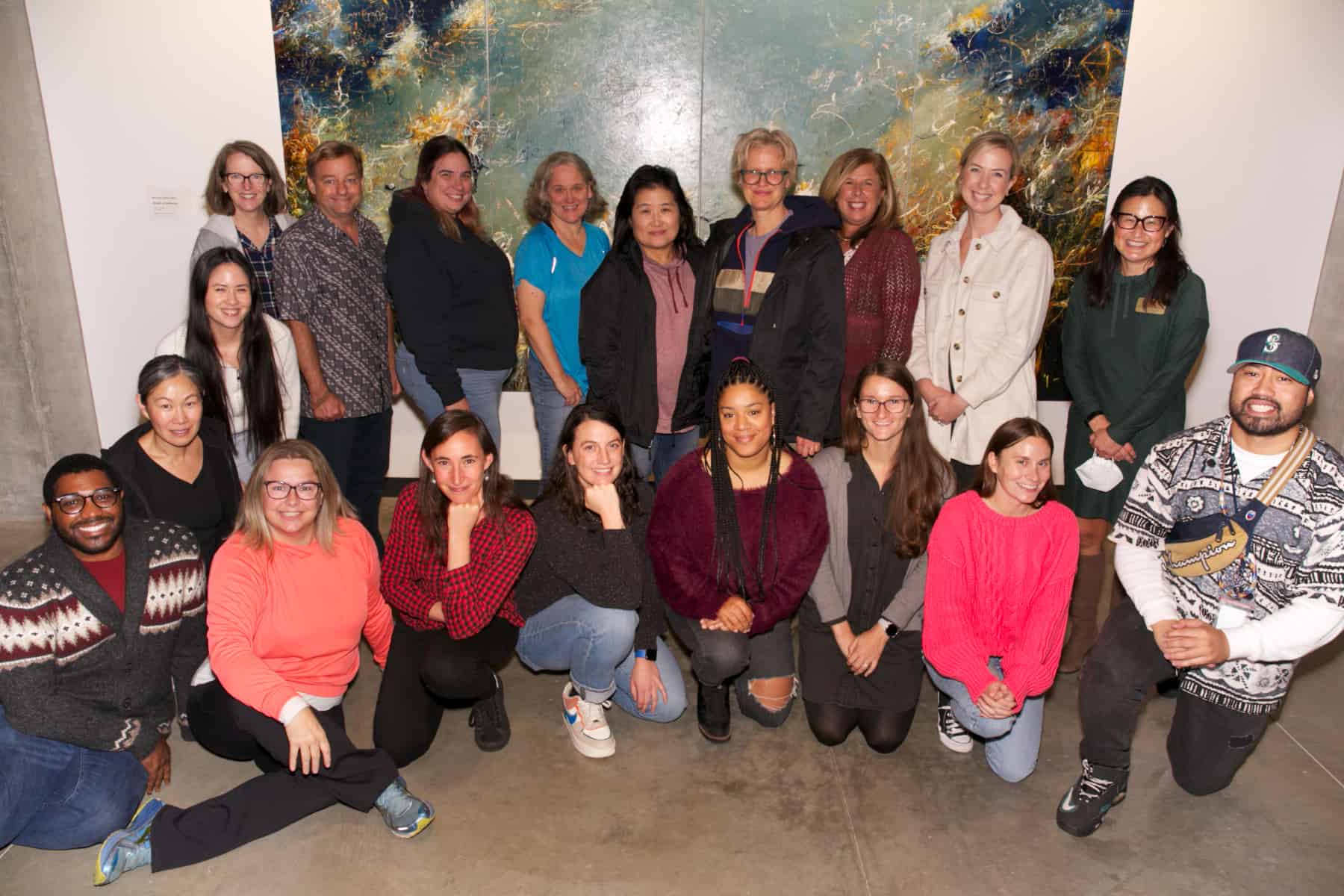Let math spark connection
What if every child could experience joy in math?
Resources
- Universal Design for Learning Guidelines
- LEN March Presentation Slides
- CRMT Wheel
- Mathematizing Student Photos Primer
- Psychic Mathematicians Routine
Fellow Collaboration Resources
Developing the path forward together
Culturally responsive instruction and inclusive classrooms are pivotal to a student’s learning experience. Through professional development sessions and co-learning, math fellows examine their instructional practice and incorporate learnings into their lessons to foster math moments that value student identity and highlight ways that mathematics is used to explore the world.
- Key actions that support ambitious teaching
- Classroom strategies that support student mathematical identity and agency
- Real-time adjustments to in-classroom strategies and instruction based on feedback from district math coaches

2022-2023 Math Fellow Cohort
Top row L-R:
Michelle Heiser, Bailey Gatzert Elementary
Bryan Street, Seattle Public Schools
Lisa Allpin, Lowell Elementary
Karen McHegg, John Muir Elementary
Joana Choi, Lowell Elementary
Katie Poux, Madrona Elementary
Donna Duarte, Thurgood Marshall Elementary
Chloe Reed, Thurgood Marshall Elementary
Kerry VonEsch, Seattle University
Bottom row L-R
Kyle Jackson II, Rising Star Elementary
Monica Sylver, Rising Star Elementary
Melissa Woodbridge, Bailey Gatzert Elementary
Sine Bodden, Thurgood Marshall
Sylvie Kovnat, John Muir Elementary
Danielle Meier, Rising Star Elementary
Claire Engelhard, Madrona Elementary
Taylor King, Madrona Elementary
Alisa Rodgers-Taylor, Leschi Elementary
Lologo Lologo, Leschi Elementary
Missing from photo
Valerie Chin, Leschi Elementary
Glen Ford, Rising Star Elementary
Jeff Frieberg, Bailey Gatzert Elementary
Michael Tamayo, John Muir Elementary
Tara O’Brien, Lowell Elementary
Explore Math Moments
Making it Count: Concept Mapping Grants Schools Necessary Time
When Sylvie Kovnat, second grade math instructor at Muir Elementary, attended a Network meeting focused on concept mapping, she appreciated the unexpected perspective it inspired. “With any new curriculum, it’s really hard to see the

